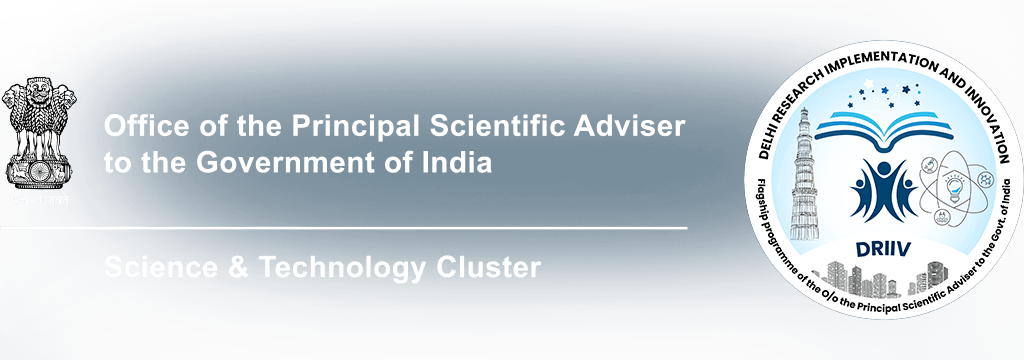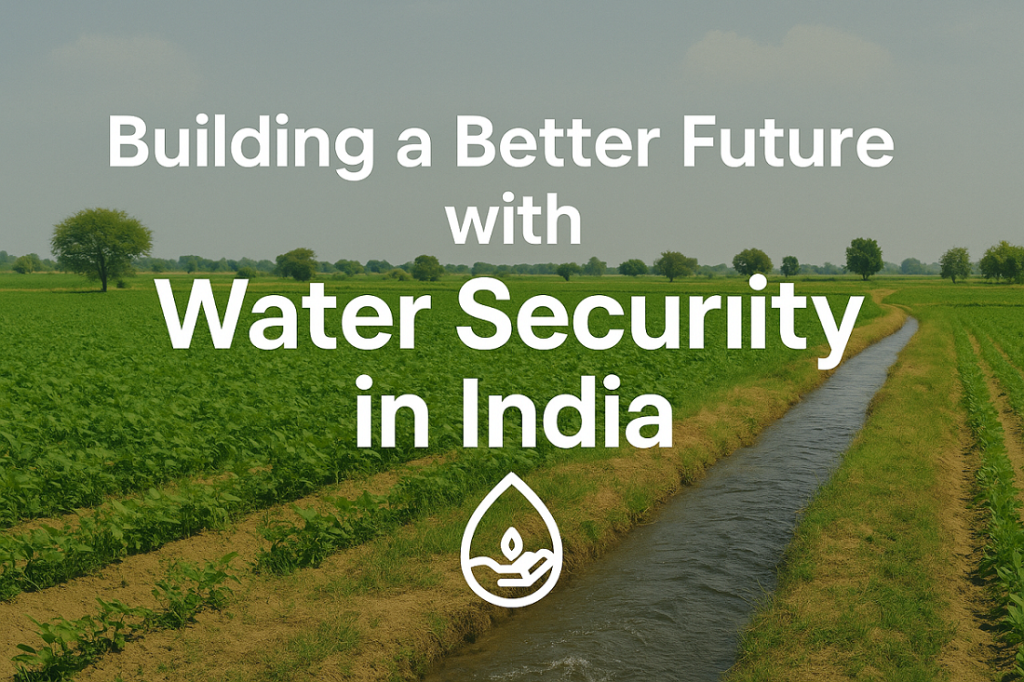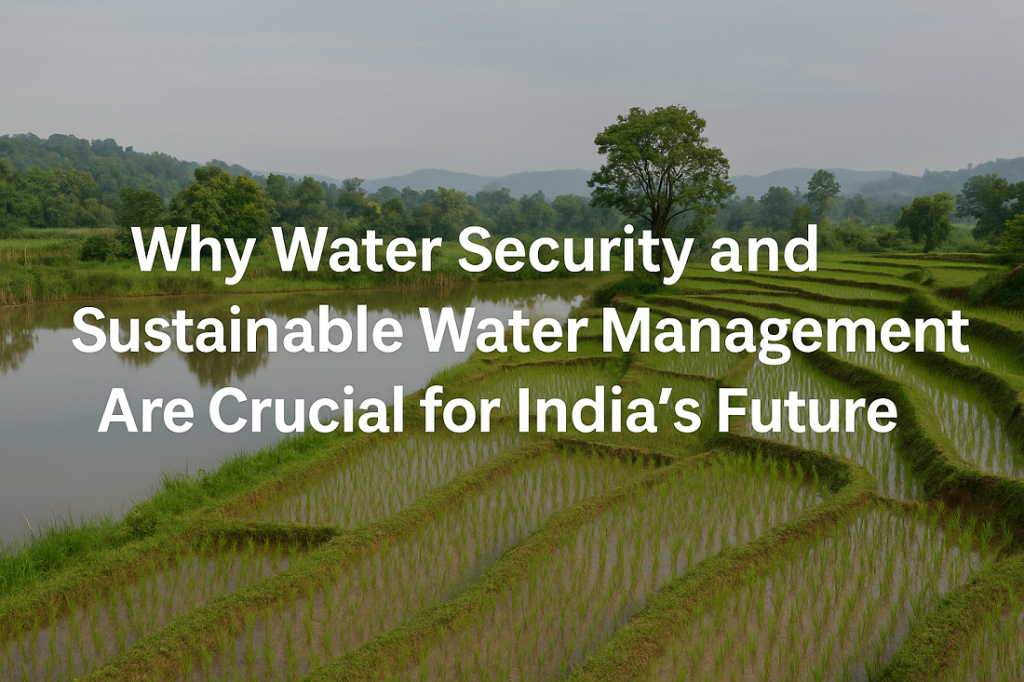By DRIIV
Water is life. It is one of the most important resources we need every day. But today, many parts of India are facing a serious problem – not having enough clean water. This issue is called water security. At DRIIV, we believe that simple, smart, and science-based steps can help solve this challenge.
In this blog, we will talk about the need for water security in India, how sustainable water management can help, and the importance of controlling water pollution. We will also explain how new methods like Phycoremediation and advanced Wastewater Treatment Technologies are making a difference.
What is Water Security?
Water security means having enough clean water for people to drink, cook, clean, grow food, and for industries to work properly. It also means that water sources like rivers, lakes, and groundwater stay safe and healthy for the future.
In India, water is not spread equally. Some areas have too much water, leading to floods. Other places don’t have enough, causing droughts. Also, much of our water is getting dirty due to pollution.
The Need for Water Security in India
India’s population is growing fast. With more people comes more demand for clean water. At the same time, water sources are becoming polluted due to untreated waste, chemicals from factories, and farming fertilizers.
According to studies, almost 70% of India’s surface water is not safe to drink. Many rivers are getting dirty, and groundwater levels are going down quickly. This is why water security in India is now a top priority for the government, industries, and organizations like DRIIV.
What is Sustainable Water Management?
Sustainable water management means using water in a smart way so that it meets today’s needs without harming future generations. This involves:
- Saving water where possible
- Recycling and reusing wastewater
- Protecting water sources from pollution
- Using better farming methods
- Fixing old water supply systems
At DRIIV, we work with scientists, engineers, and policymakers to promote sustainable water management projects across India. We believe in science-driven solutions that are easy to apply and scale.
How Can We Control Water Pollution?
Control of water pollution is a big part of keeping our water secure. Pollution happens when dirty water from homes, factories, and farms flows into rivers, lakes, and underground water.
Here are simple ways to reduce pollution:
- Treating wastewater before releasing it
- Using natural cleaning methods like Phycoremediation
- Educating people not to throw garbage in water
- Banning harmful chemicals in farming
- Setting up proper drainage systems in cities
At DRIIV, we support new and effective ideas to keep our water clean and healthy.
What is Phycoremediation?
Phycoremediation is a smart and natural way to clean dirty water using algae. Algae are tiny green plants that grow in water. They can remove harmful chemicals and metals from wastewater.
This process is:
- Eco-friendly
- Low-cost
- Easy to use in both rural and urban areas
- Great for cleaning wastewater from factories and homes
DRIIV is promoting Phycoremediation as part of its green technology efforts. This method is helping many small towns and cities improve water quality without spending too much money.
Advanced Wastewater Treatment Technologies
Besides natural methods, there are also many modern Wastewater Treatment Technologies that help clean dirty water. Some of these include:
Membrane filtration – removes small particles and germs
UV treatment – kills bacteria using ultraviolet light
Activated sludge process – uses helpful microbes to break down waste
Reverse osmosis (RO) – removes salt and other pollutants
Decentralized treatment systems – small units for homes or apartments
DRIIV supports research and development of these new technologies to make clean water available everywhere.
DRIIV’s Role in Water Security
At DRIIV, we work at the intersection of science, society, and policy. We bring researchers, government departments, and innovators together to create solutions for water security in India.
Some of our ongoing efforts include:
- Promoting Phycoremediation in small cities and villages
- Working with urban planners for better drainage systems
- Supporting startups with smart Wastewater Treatment Technologies
- Helping farmers use less water with drip irrigation
- Educating communities about water conservation
We believe that when everyone works together, India can achieve complete water security.
Why Water Security Is Important for Everyone
Water is connected to everything – our health, food, economy, and the environment. When there is clean and safe water:
- Children stay healthy and go to school
- Farmers can grow crops without worry
- Industries can function smoothly
- Nature can thrive
- Communities can live better lives
But when water is polluted or not available, it affects everything. This is why we must all take steps to improve sustainable water management and the control of water pollution.
Easy Tips to Save and Protect Water
You don’t need to be a scientist to help. Here are some simple things anyone can do:
- Turn off taps when not in use
- Fix leaking pipes
- Use buckets instead of showers
- Reuse water from washing vegetables to water plants
- Don’t throw garbage or chemicals in drains
- Plant more trees to protect rivers and lakes
- Every drop counts!
FAQs on Water Security in India
Q1. What is the meaning of water security?
Answer: Water security means having enough clean water for drinking, farming, industry, and nature, now and in the future.
Q2. Why is water security important in India?
Answer: India faces water problems due to growing population, pollution, and uneven rainfall. Water security helps ensure a safe and healthy future for everyone.
Q3. What is sustainable water management?
Answer: Sustainable water management means using water wisely so that it is not wasted and is available for future generations.
Q4. How can we control water pollution?
Answer: We can control water pollution by treating wastewater, reducing chemical use, and using natural methods like Phycoremediation.
Q5. What is Phycoremediation?
Answer: Phycoremediation is the use of algae to clean dirty water. It is a natural, low-cost, and eco-friendly method.
Q6. What are the modern wastewater treatment technologies?
Answer: Some modern Wastewater Treatment Technologies include reverse osmosis, UV disinfection, membrane filtration, and activated sludge systems.
Q7. What is DRIIV doing to improve water security in India?
Answer: DRIIV is working on projects related to sustainable water management, promoting Phycoremediation, supporting new technologies, and working with communities and governments to improve water security.
Conclusion
India’s future depends on how we manage water today. By focusing on water security, sustainable water management, control of water pollution, and adopting natural and modern methods like Phycoremediation and new Wastewater Treatment Technologies, we can make sure every Indian has access to clean and safe water.
At DRIIV, we are committed to building a water-secure India through science, partnerships, and action.




